Month Five in Málaga—La Feria de Málaga

It’s August, the hottest month of the year in Málaga. It’s also the month of Feria, eight days of more than 200 free shows, some on stages set up in various plazas in the Centro Histórico, referred to as the day fair, and many others at the fairgrounds five miles away, considered the night fair. Not to mention the spontaneous singing and dancing in the streets, especially the main street Calle Larios where we live. Calle Larios is also where Feria vendors set up stalls to sell fans, flowers, shawls, and hats—all the appurtenances to partake in the revelry.
Since three of the day fair stages were steps away from our apartment, I managed to catch a lot of the entertainment as well as watch the multitudes dance to the music, sing along with the bands, imbibe the official wine, and be beautiful in flamenco attire.
I went to the night fair on opening day, watched the promenade of horses and carriages, ambled the length and width of the grounds, and caught the blast of music coming from each of the 200 or so casetas, the small houses that serve food and feature music and dancing. It was colorful, infectious, and very, very loud.
For a perspective from someone more in the know about Feria, I interviewed my Spanish teacher. I also threw in some questions about living in Málaga and about teaching Spanish. The interview was conducted in the middle of Feria week as you’ll glean from the time references. And it was done in Spanish so you’ll have to trust my translation.
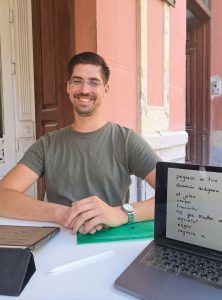 Sebastián is fun and easy-going, but serious about teaching. He’s from Chile and has lived in Málaga for two years where he seems very much at home.
Sebastián is fun and easy-going, but serious about teaching. He’s from Chile and has lived in Málaga for two years where he seems very much at home.
Why Málaga, I asked.
“Life in Málaga is like no other part of the world,” was his succinct and unambiguous reply.
I asked Sebastián why he liked Feria so much. If you could listen to the recording, you would hear the merriment in his voice.
The vibe, the music, the party, the beer. At the fairgrounds, there are the casetas. You go to one and have a beer and meet people, when you get bored, you move to another caseta and dance a while, and then go to another caseta, and so you spend the whole night going from one caseta to another. I also like the rides. For instance, yesterday, my friend and I rode the bumper cars, the pirate boat, the roller coaster, and other things that I don’t remember.
I didn’t ask why he didn’t remember, but I did ask whether the roller coaster didn’t scare him. “The truth is, it does,” he laughed,” but yesterday I was very content.” The part of Feria he likes most?
What I like most is basically it’s a giant party for the whole city. There’s a lot of commotion and crowds. There are some people who are more introverted and don’t like noise or crowds. I’m the opposite. I like the crowds, the noise, the shouting. Not all the time. That’s why Feria exists.
I asked him how amid the competing volumes of the casetas anyone could emerge with their hearing intact. Yes, that’s a question from a septuagenarian who has never tolerated loud music well.
There’s no way to escape the noise. It’s impossible. It’s true that you can be overcome at some point by the noise. When that happens to me, I just say, enough and go home. But as far as hearing damage? I don’t think it’s that loud. It’s the concept of rock.
Okay, so there you have the difference between a thirty-four-year-old and a seventy-year-old.
I had read that Feria celebrates the reconquest by the Catholic King and Queen, and I wondered if Sebastián knew this and whether he thought people, in general, knew it.
I’m embarrassed that I didn’t know that. But I don’t think people, in general, know that either. When there’s a fiesta, no one takes the trouble to investigate or verify the why, when, how. It’s a party. You drink, and that’s it.
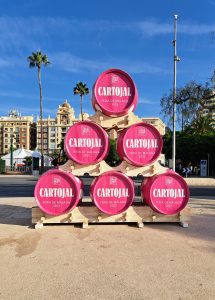 There’s an official wine of the Feria called Cartojal. Here’s Sebastián’s take on it.
There’s an official wine of the Feria called Cartojal. Here’s Sebastián’s take on it.
I have a lot of respect for Cartojal. The taste isn’t bad, but I’m not inclined to drink too much of it. The problem with Cartojal is that it’s very sweet, so you start to drink, and drink some more, and drink some more and you don’t realize that you’re drunk, very drunk, and later the hangover is terrible. I drink it out of tradition, but I drink it slowly and just a little, and then I switch to beer.
Since arriving in Málaga, I have felt very comfortable here. It feels welcoming, though as a foreigner, I wonder when or if I will genuinely feel a part of the community here. Does Sebastián after two years here feel like a Malagueño?
I don’t feel like a Malagueño, but neither do I feel like a foreigner since I’m from Chile, and in Latin America, Spain is called the mother country. It’s not Chile, but here everything is familiar. Nothing has surprised me. Spanish is my language of birth so I feel very much at home here.
I think that will be the key for me. Becoming fluent in Spanish will help me feel more part of life here.
I asked Sebastián to describe the character of the Malagueño.
I think the Malagueño is a little distant, a little closed off because, look, after the party and the jokes and laughter, making friends with a Malagueño is very difficult. For example, here in Málaga, I have maybe twenty or thirty friends, none Malagueños, in fact, none Spanish. All of my friends are from Latin America or Germany or other countries. But I have no Spanish friends. Okay, maybe I have one, but we don’t spend a lot of time together. And I understand why. The Malagueño has his childhood friends, his friends from school, his cousins, his friends from work and university. His social circle is already complete. He’s not interested in outsiders, and considering that Málaga is very touristy, they know that in a month or three or in a year the outsider will leave, and no one wants to spend time and money on a person that will leave soon.
How much do Andaluces love to sing and dance? A lot. Whether pop or traditional, the song lyrics seem to be universally known among the young and old who sing them with gusto. I asked Sebastián if he thought this tendency was particular to Malagueños or to Spanish people in general. And was this characteristic also found in Chilenos, for example?
The Spanish, in general, but even more the Andaluces. In Cádiz, there, you will go wild. Chilenos are more reserved. The Spanish when they’re partying and everyone is singing with everyone else, there is no drama. On the other hand, when Chilenos are partying, they shout but only within their group. They’re less sociable, I would say.
 Feria lasts eight days. Do people get tired of so much partying and celebration?
Feria lasts eight days. Do people get tired of so much partying and celebration?
Yes, of course, they get tired. The fair in the first few days es una brutalidad. The third day is calmer because the body can’t withstand the excess. I went to the fair two times and celebrated the Feria here in the Centro and not at the fairgrounds. But, tomorrow, yes, I’ll go again.
Sebastián knows and teaches three languages: Spanish, German, and Russian. In my own self-interest, I asked him if he’d ever had a student that never achieved fluency in the language they were studying.
The truth is yes. In ten years of teaching, one realizes very quickly who will learn Spanish well, who will learn it decently, and who will never learn it.
Did I ask which category I fall into? No, I did not. I asked him why some people will never learn Spanish.
I think there are two factors. One is lack of ability and the other is lack of motivation. They might say they want to learn, but then they don’t do it. They don’t do the homework. They don’t make the extra effort to read a book or watch a video in Spanish or things like that. There are people who think that to learn a language you only need to spend one or two hours a week and that’s it. Learning a language is immersing yourself in the culture and this takes a long time and much effort. Some people think that by paying for lessons the language will automatically transfer to their head. It doesn’t work that way.
Too bad. No shortcuts. No magic. Just effort and practice, which I do put forth, though sometimes I wish for a little bit of magic.
But I’m glad to have come across Sebastián. He’s not only a great teacher, he’s a great source of information about Málaga and the people who live here. And he’s a big fan of Feria, itself more than a bit of magic.
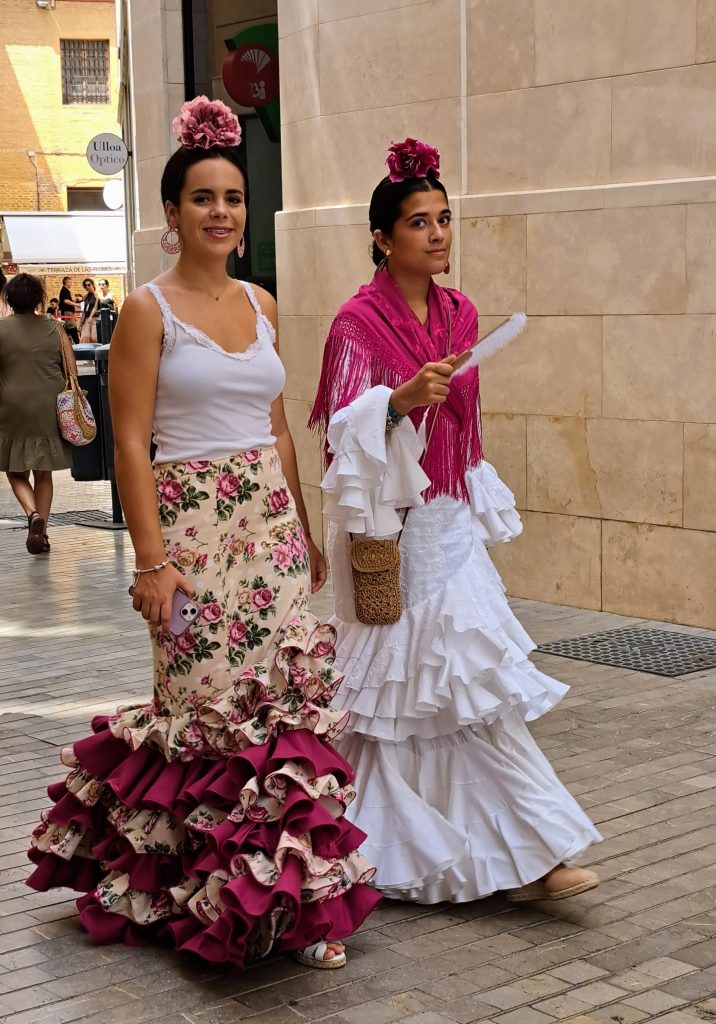
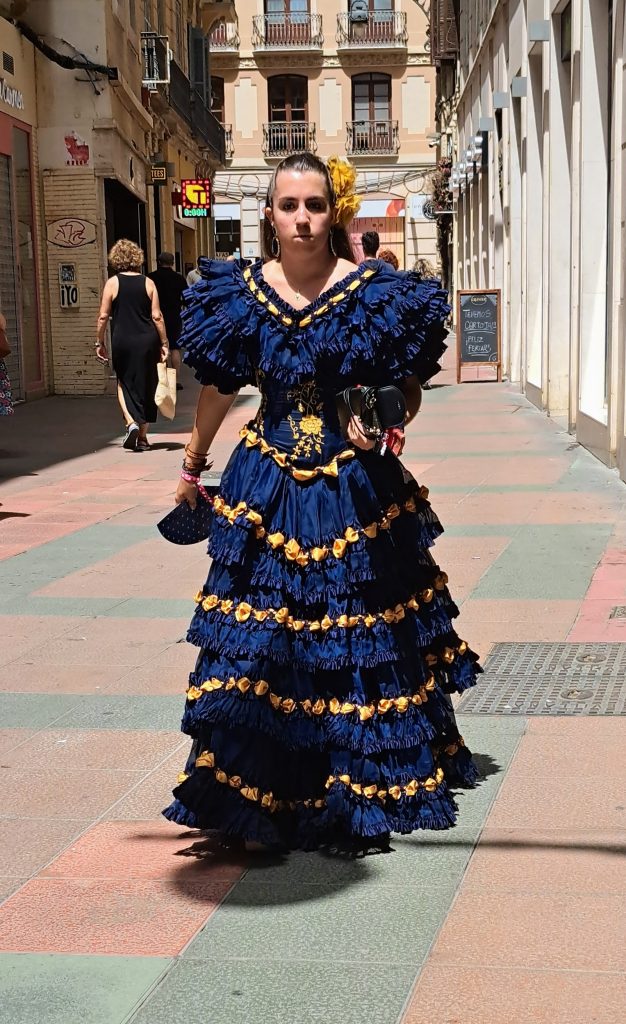

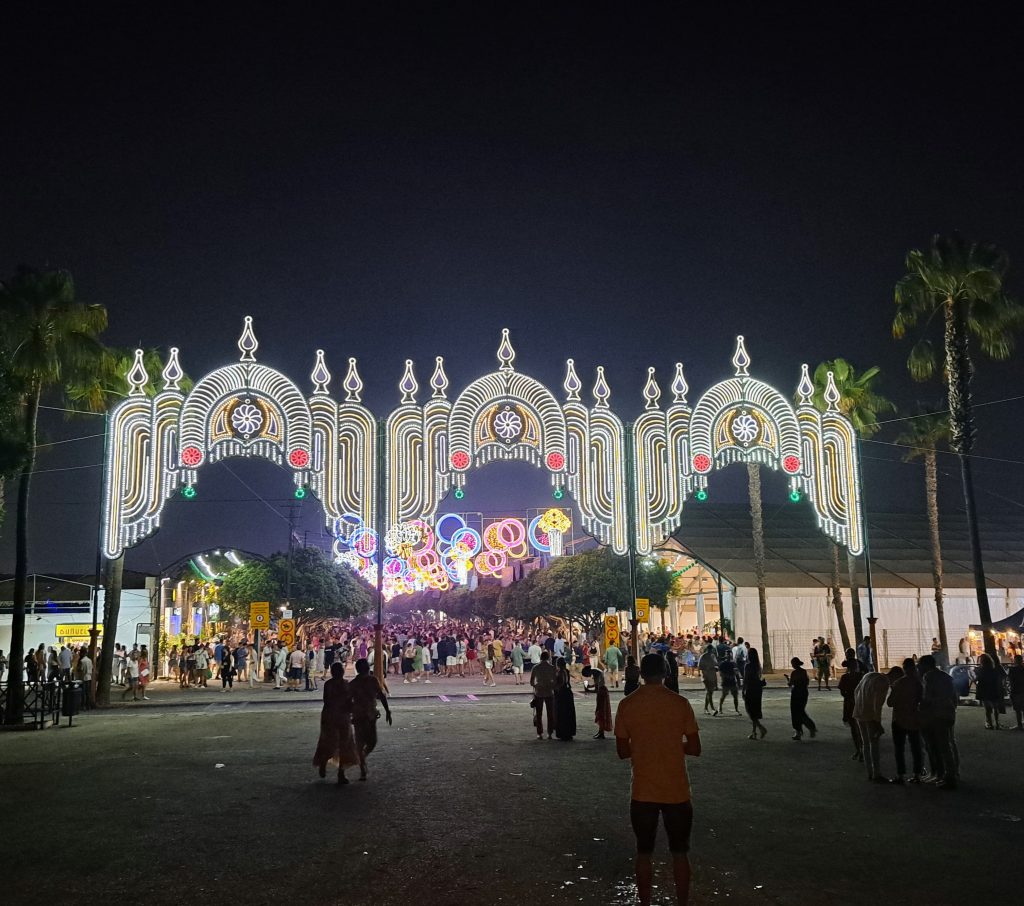
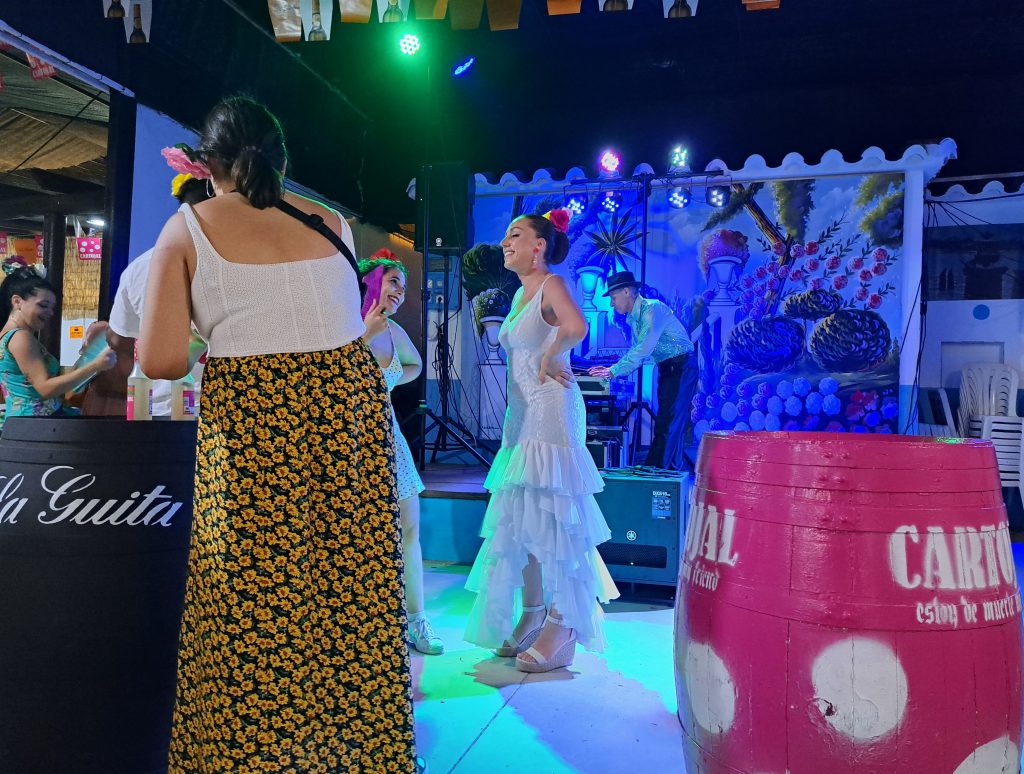
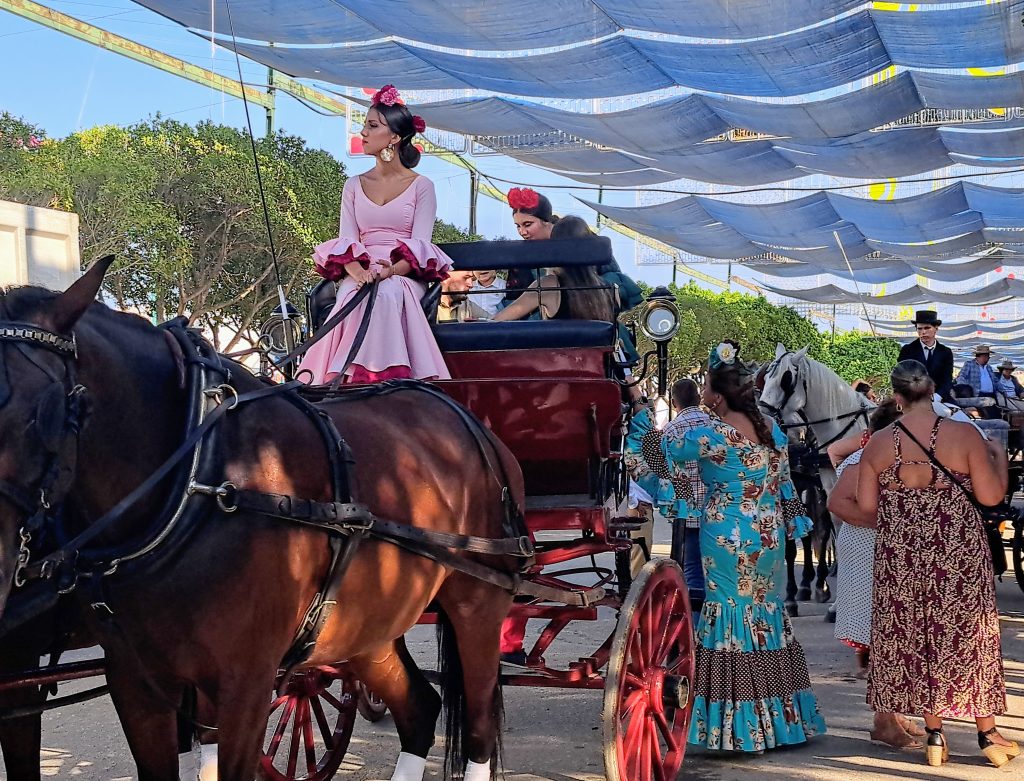
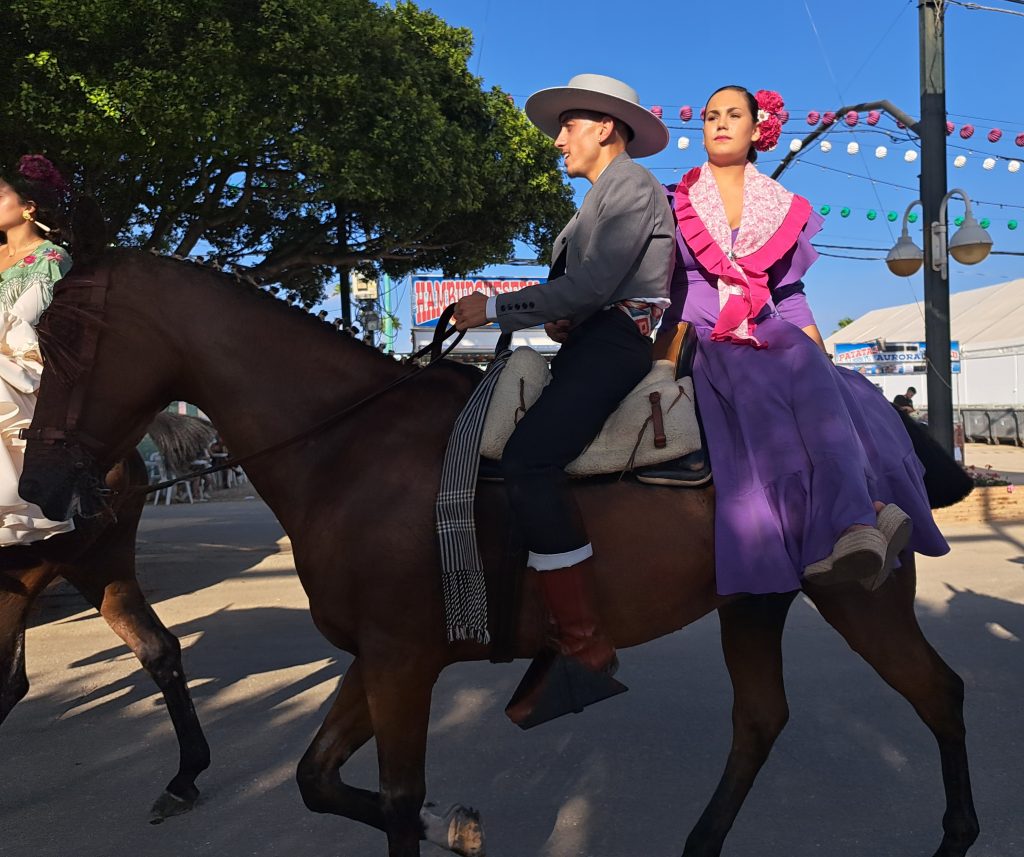
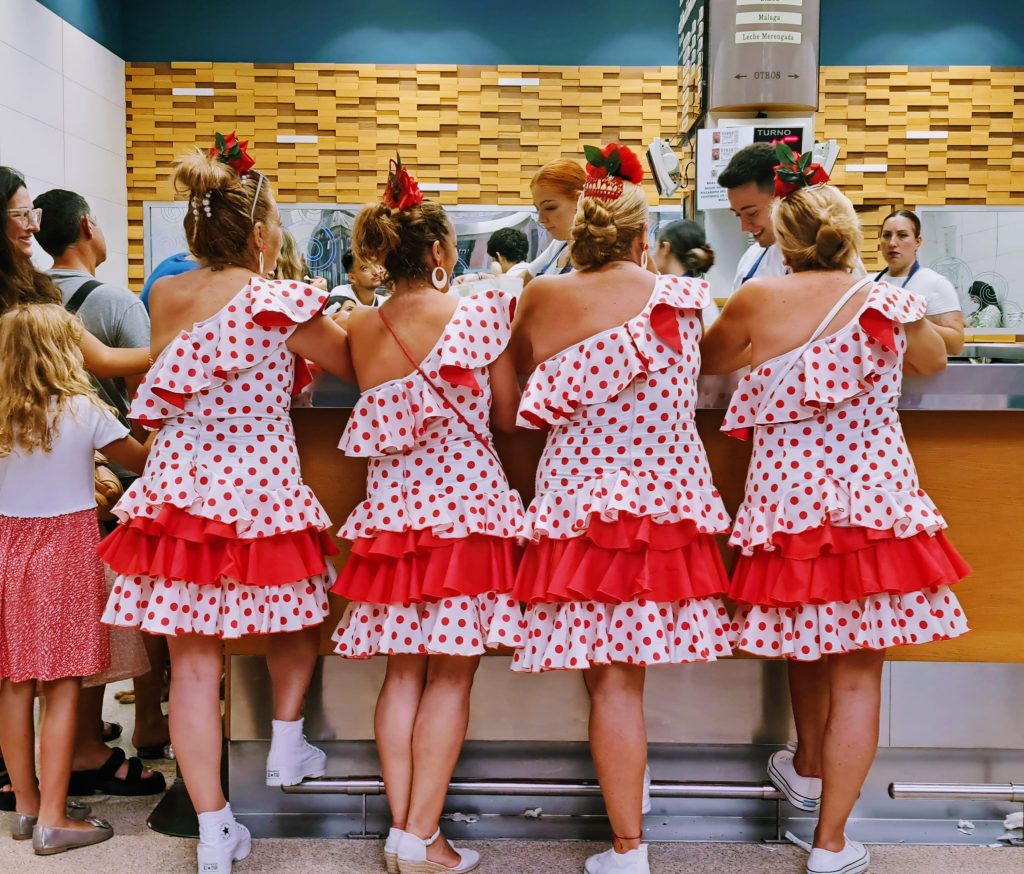

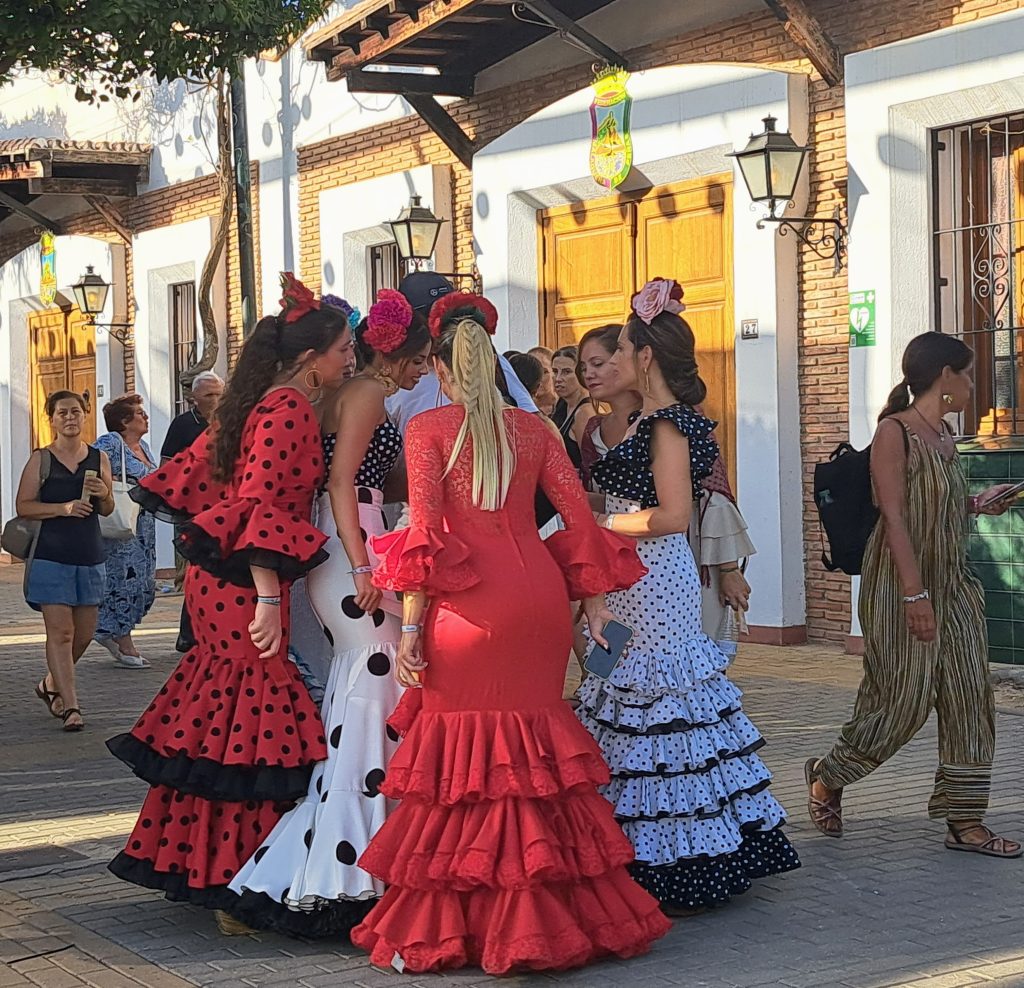
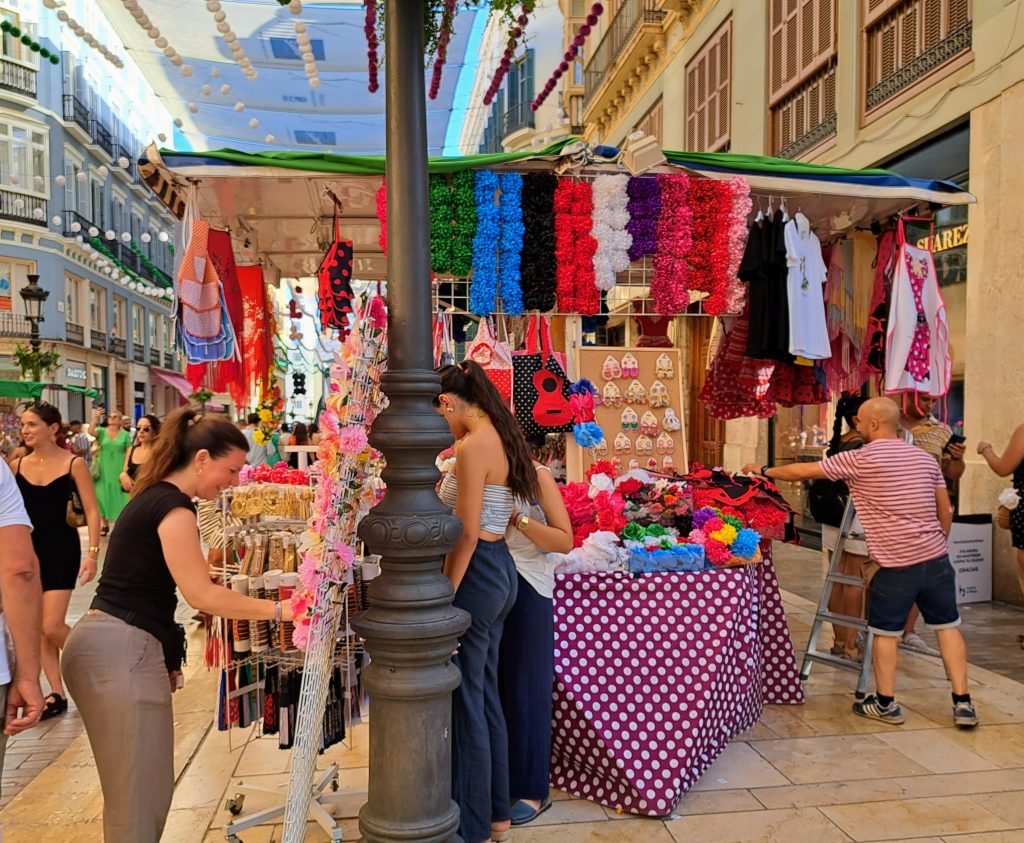
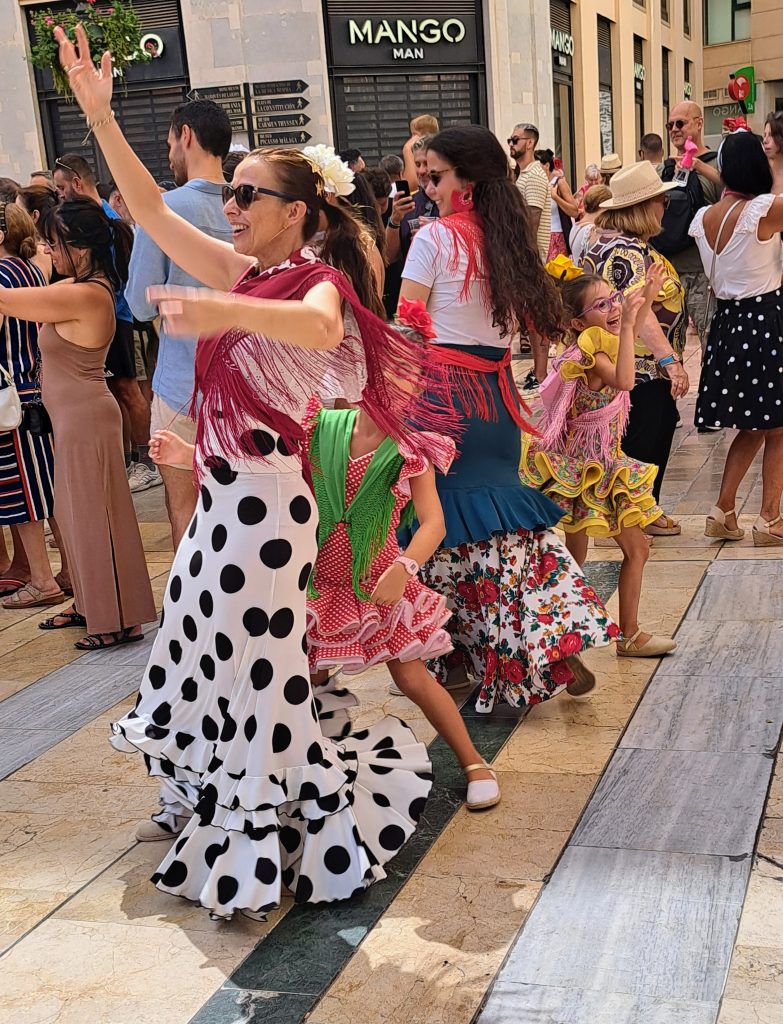
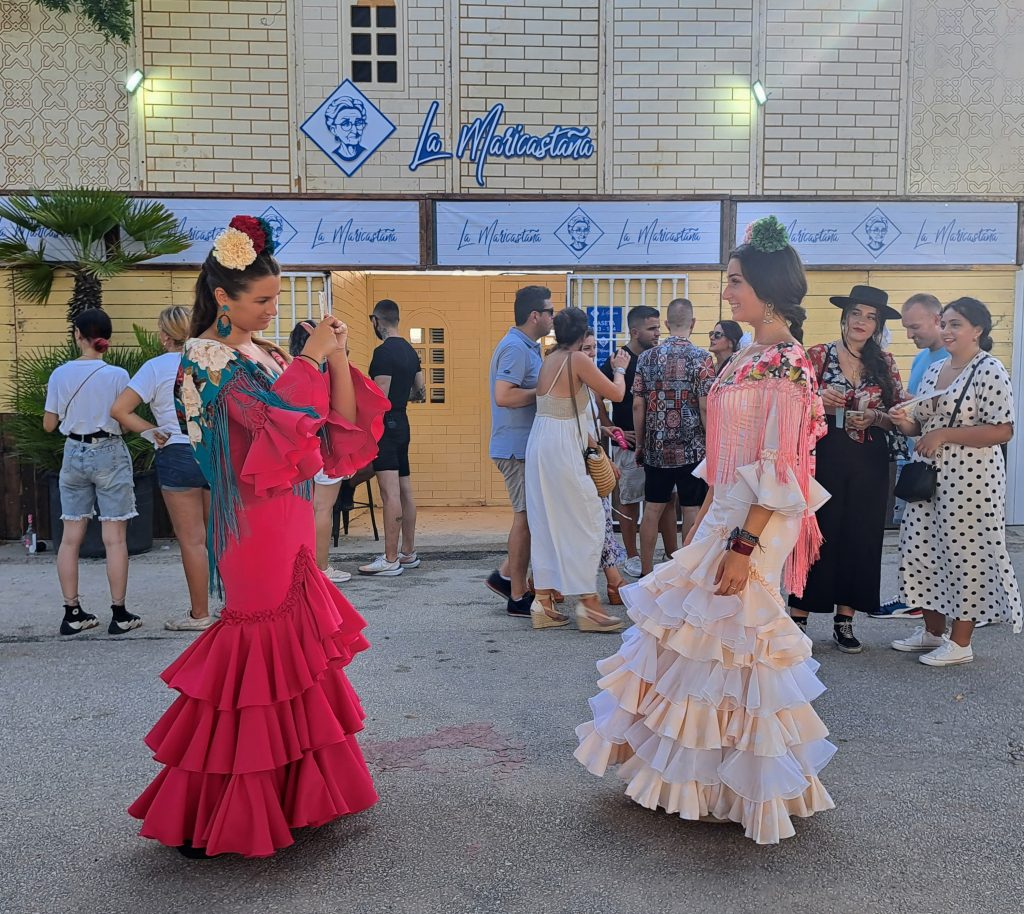
Very informative interview! Thanks!
Thank you, Joyce!
I haven’t been keeping up with you! I guess I need to start up with Duolingo again, before I forget what little I have learned. Have the recent storms affected you?
I never found Duolingo to be what I needed. I prefer podcasts. Se Habla Español and Hoy Hablamos are both hosted by Spaniards. Charlas Hispanas is Latin American. I also like these podcasts that are just regular podcasts and not specifically geared to language learning: Mujeres con las Botas Puestas and Entiende tu Mente.
At the beginning of September we had a couple of cloudy days with brief periods of rain. Back to temps in the 80s now but often with a lovely breeze from the sea.